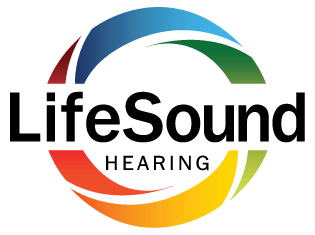Many individuals have powerful recollections of a cherished family pet. Cats, dogs, birds, rabbits, and a wide variety of other animals can enrich our lives, and even, in some situations, become close companions. For people with hearing loss, pets can offer added benefits that improve symptom management and quality of life.
Sometimes, pets are specifically trained to supply special benefits. Service animals for those with hearing loss can be trained to give specific forms of support or even complete particular tasks. Sometimes, though, that isn’t the situation. Even an everyday animal companion with no special training can provide comfort and friendship. Special bonds between animals and people who have hearing loss are frequently formed as a result.
Can owning a pet provide improved mental health?
Neglected hearing loss can be incredibly isolating, making it hard to hear and understand people around you. This break in communication can cause the individual with hearing loss to isolate themselves.
So, is having a pet worthwhile? Definitely! A cat, dog, or other companionable animal can communicate in lots of of non-verbal ways. Clear communication with animals can be achieved without the need to hear verbal language. People with hearing loss can effectively bond with all kinds of pets (this is typically dependent on personal preferences), and these pets can provide comfort and emotional reinforcement during what may be a very lonely time.
Clearly, this doesn’t take the place of contact between humans. But when making human connections is difficult, it can offer some comfort and support. Pets can also help you discover opportunities to connect with other people. Bringing your dog to the dog park, for instance, can give you an opportunity to be around other people, even if you don’t necessarily initiate a conversation or make a new friend.
Pets can be great helpers
In the instance of a service dog for hearing impaired people, these animals are specially trained to assist their human companions in moving around and functioning in the world. Generally, that means these service animals are trained to be aware of sounds that those who have hearing loss might otherwise miss.
Some of the things a service dog for those who have hearing loss is trained to do include the following:
- Alerting their human to daily sounds like a ringing phone, alarm clock, or a whistling teakettle.
- Service dogs can even be trained to distinguish their human’s name, and when that human is being spoken to. Individuals who have hearing loss will have an easier time communicating with others as a result.
- Detecting the sound of approaching traffic or other hazards.
- Hearing the doorbell ring or someone knocking on the door.
- Notifying their human when the smoke alarm is sounding.
Service animals are specifically trained to notice these sounds and communicate them to their human. But other non-service animals can also be helpful to somebody with hearing loss. Even a non-trained dog can bark when the doorbell rings. Cats and other animals will also usually react to abrupt or unknown sounds which their owner will pick up on if they are in tune with their pet.
A symbiotic relationship
Pets can add lots of benefits to your life without you even recognizing it. Adding some structure to daily life is one of those benefits. They need to be fed, walked, and given love on a regular basis, for example. This structure can be an important source of comfort. Lots of different types of animal-assisted therapies exist because of this.
But if you’re contemplating getting a pet or service animal, it’s essential to give it some careful consideration. You want to choose an animal that’s going to meet your requirements and that you will be able to adequately care for.
While a service animal can be a big help, they aren’t able to provide the same level of long-term benefits or the same capabilities as a hearing aid. However, pets can be an important part of your life and provide a trusty companion. They can be a unique and valuable part of their life.
Call us today for an appointment and begin moving toward better hearing!
[blogcta]

